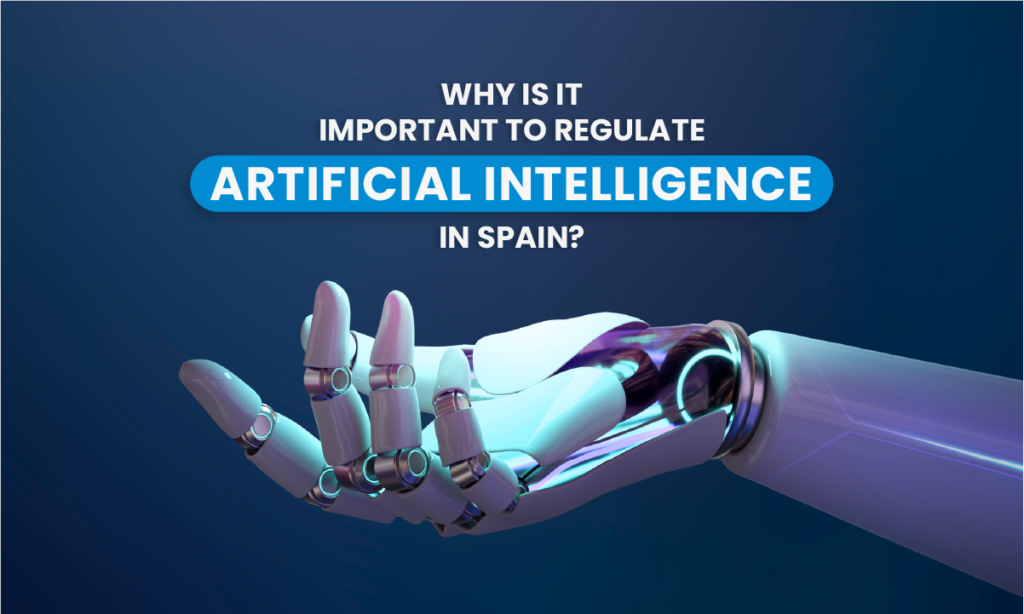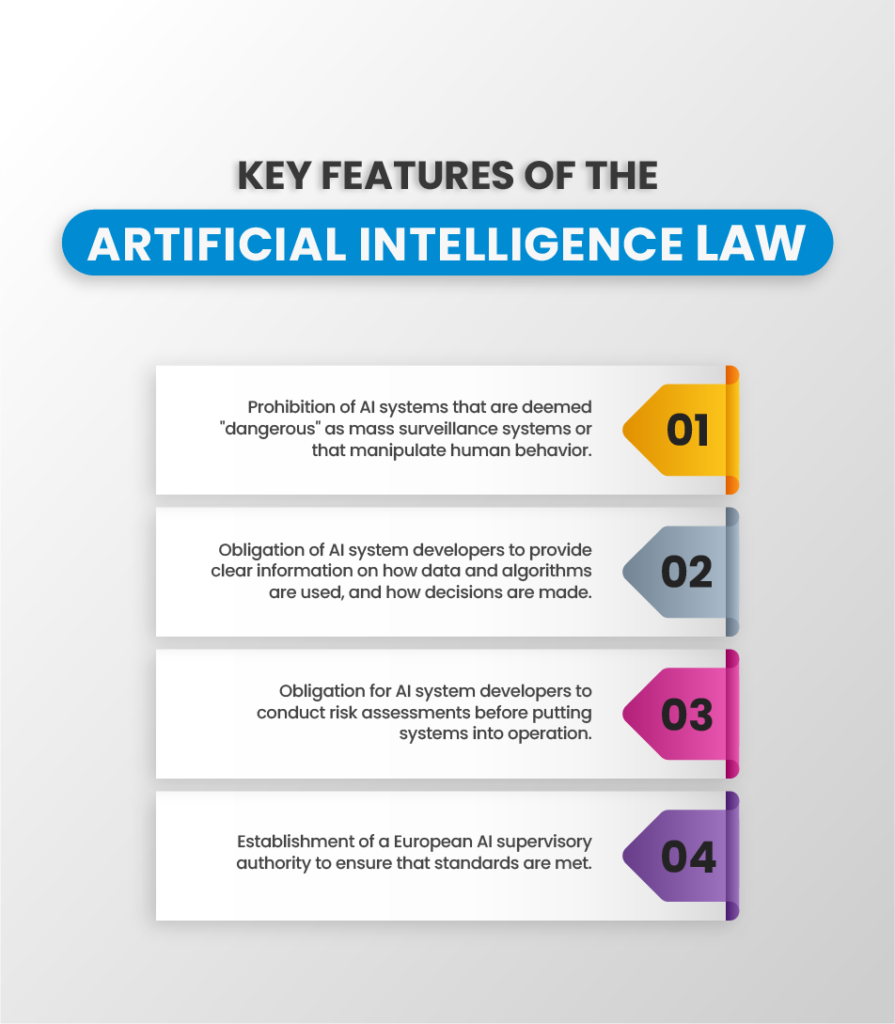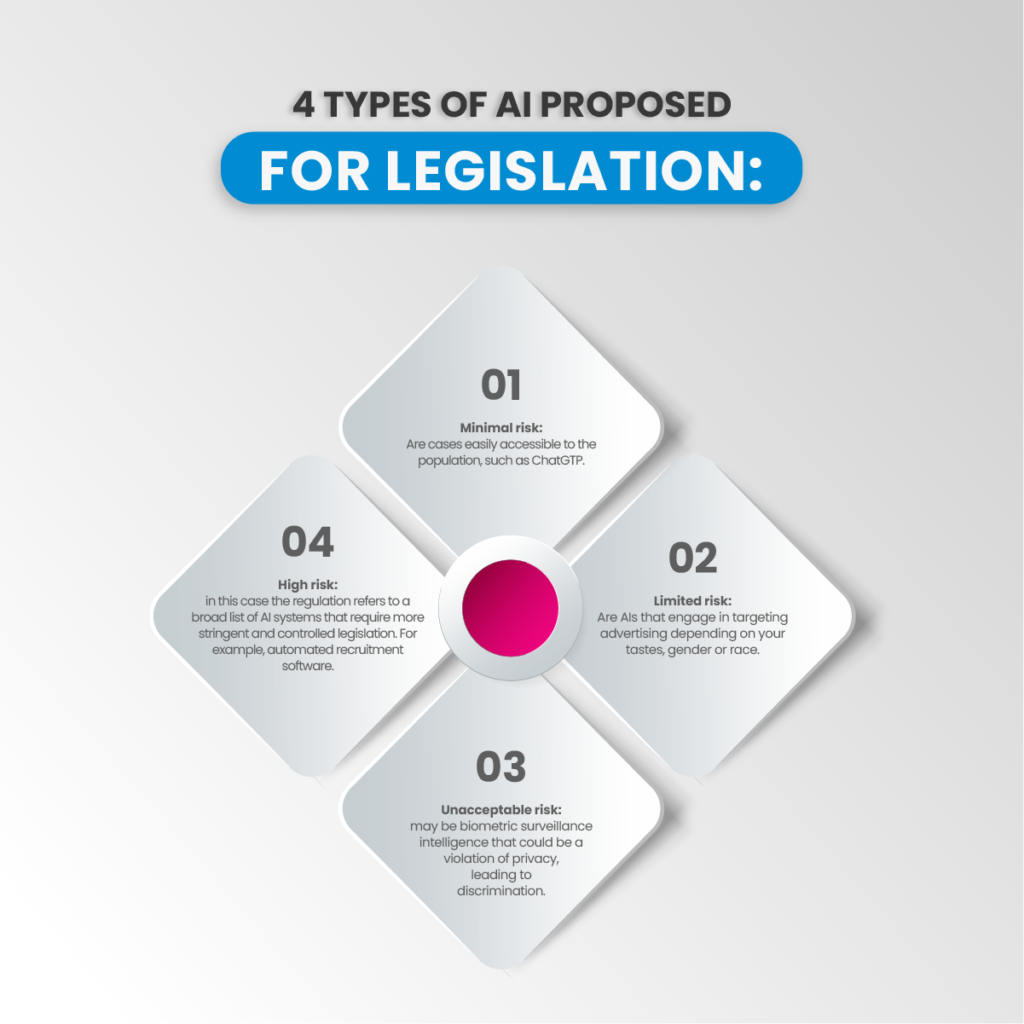
With the advent of artificial intelligence, the European Union, as well as many international organizations around the world, are evaluating a new legal framework to strengthen regulation on the development and use of AI with a new law. This new law, which involves the regulation of Artificial Intelligence Spain, focuses on strengthening rules on data quality, transparency, human oversight and accountability for AI. Interested? Then stay with us until the end!
What is the Artificial Intelligence Law?
The Artificial Intelligence Act proposed by the EU aims to regulate the use of artificial intelligence in Spain and throughout the European Union. The commission presented this draft law in April 2021 as part of its strategy for the digital transformation of Europe.
The draft law is still under consultation and must be approved by EU member states and the European Parliament before becoming law. If approved, the EU Artificial Intelligence Act is expected to come into force in 2024.
You may also be interested in: Impact of health tech today
What does the Artificial Intelligence Act propose?
The EU Artificial Intelligence Act suggests clear rules to ensure that Artificial Intelligence Spain is used ethically and responsibly. And not only that, but also that it protects the fundamental rights of citizens.
That said, here are some of the key features included in the law:

4 types of AI proposed for legislation
The regulation currently managed by the European Union determines four levels to regulate the risks posed by Artificial Intelligence systems in Spain and Europe, see them below:

You may also be interested in: Spanish companies and ICO guarantees
Why is the regularization of artificial intelligence in Spain important?
To ensure that technologies do their job of benefiting society, it is necessary to create a regulatory framework. In this, ethical principles must be present in every development, implementation and operation of this new technology.
The idea is to protect the public interest and establish a set of rules that will generate confidence in European society. And that, at the same time, gives value to companies in the technology market, making European artificial intelligence a technology worthy of the world’s trust.
After all, throughout history we have witnessed what happens when industries regulate themselves. One only has to ask the following question to understand the need for regulation: Who is responsible in the event that AI causes harm? The designer? The manufacturer? The owner? The user? Or even the AI itself?
Also, there is the discussion of whether an autonomous electronic personality should be recognized for the most advanced systems. One that directly attributes rights and obligations.
Proposed recommendations for the regulation of artificial intelligence
The report presented by lawmakers in the EU is focused on a series of recommendations for the future regulation of artificial intelligence.
In this, the initial point is always to give priority to ethics in the use of artificial intelligence in Spain and Europe. But, in addition to this, other recommendations are proposed, such as:
- Ethical codes: large companies are expected to be complemented by a special framework where the specific principle is based on the protection of human rights, democracy, freedom and economic and social cohesion.
- Charter of digital rights: although this charter does not have a normative character, its objective is to suggest policies regarding rights in the digital environment. The idea is that it should be developed to encourage the adoption of its principles and that it should acquire legal status.
- Sharing of competencies: exists in the political and legal framework and recommends promoting coordination and inter-administrative cooperation.
- Change in the educational system: the system promotes this movement because children would have to have knowledge related to AI. Therefore, the state should invest in digital education by equipping educational centers with the appropriate infrastructure.
- Politics, women’s vision and taxation: it is important to boost women’s presence in all aspects of this area. In addition, the report is notable for recommending the pursuit of simplified and harmonized taxation across Europe.
How are the new algorithms expected to develop?
The proposal also puts forward a series of recommendations on how the next algorithms for artificial intelligence Spain should be developed, which should have an ethical approach such as:
- Transparency: enhance this mechanism to ensure that, during data collection, individuals know who is aware of who has access to their data.
- Unbiased: IA is expected to prevent discrimination and protect diversity. Enabling an unbiased data set.
You may also be interested in: Financial data protection: How are customers protected?
If you are interested in learning more about the Artificial Intelligence Law Spain and how it works, I invite you to contact us through our email tasconsultoria@tas-sl.es. We have excellent professionals who will guide you and provide all the information you need on the subject. Contact us and take your company into the future.
Remember to request your free advice, we are waiting for you.




Your email address will not be published .
Required fields are marked with *